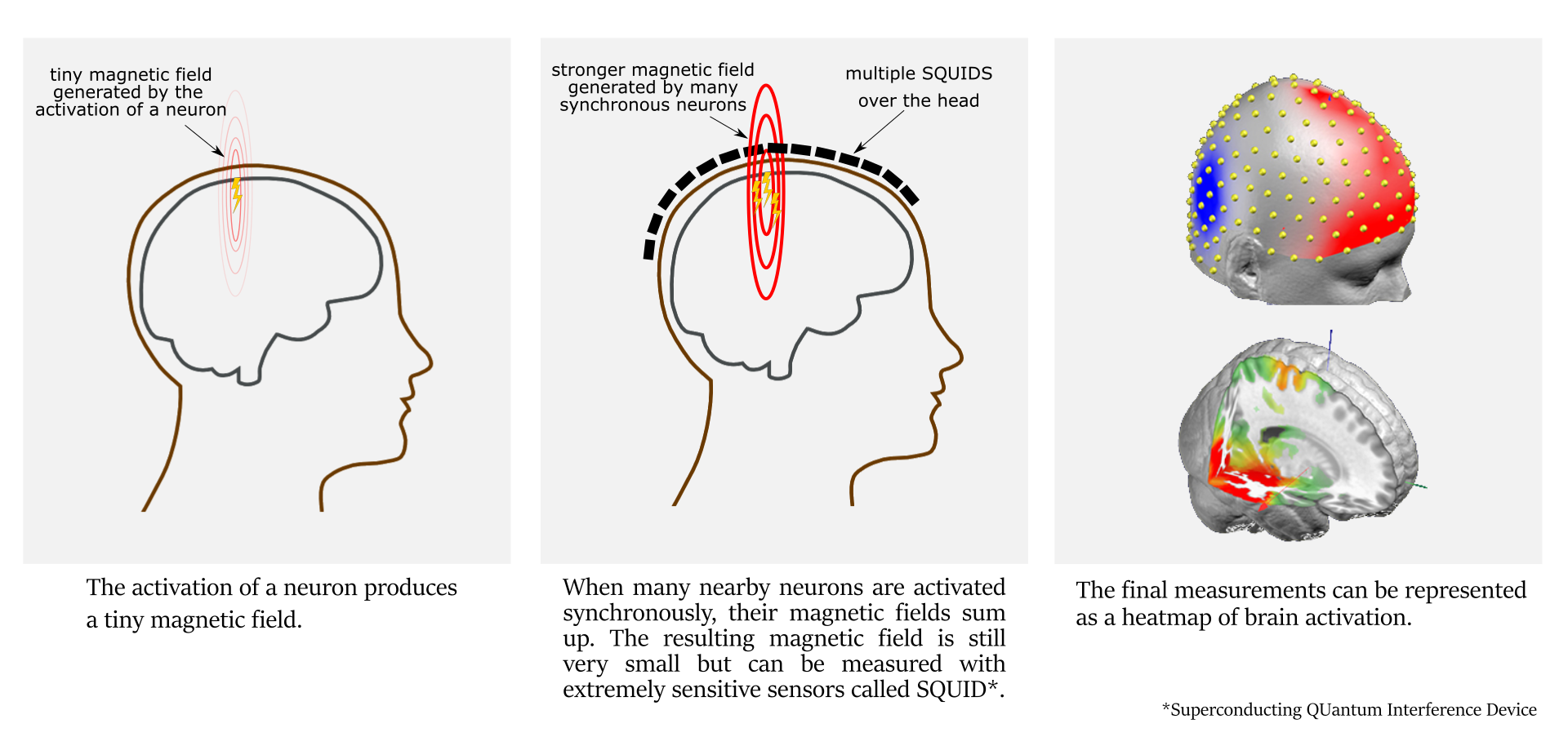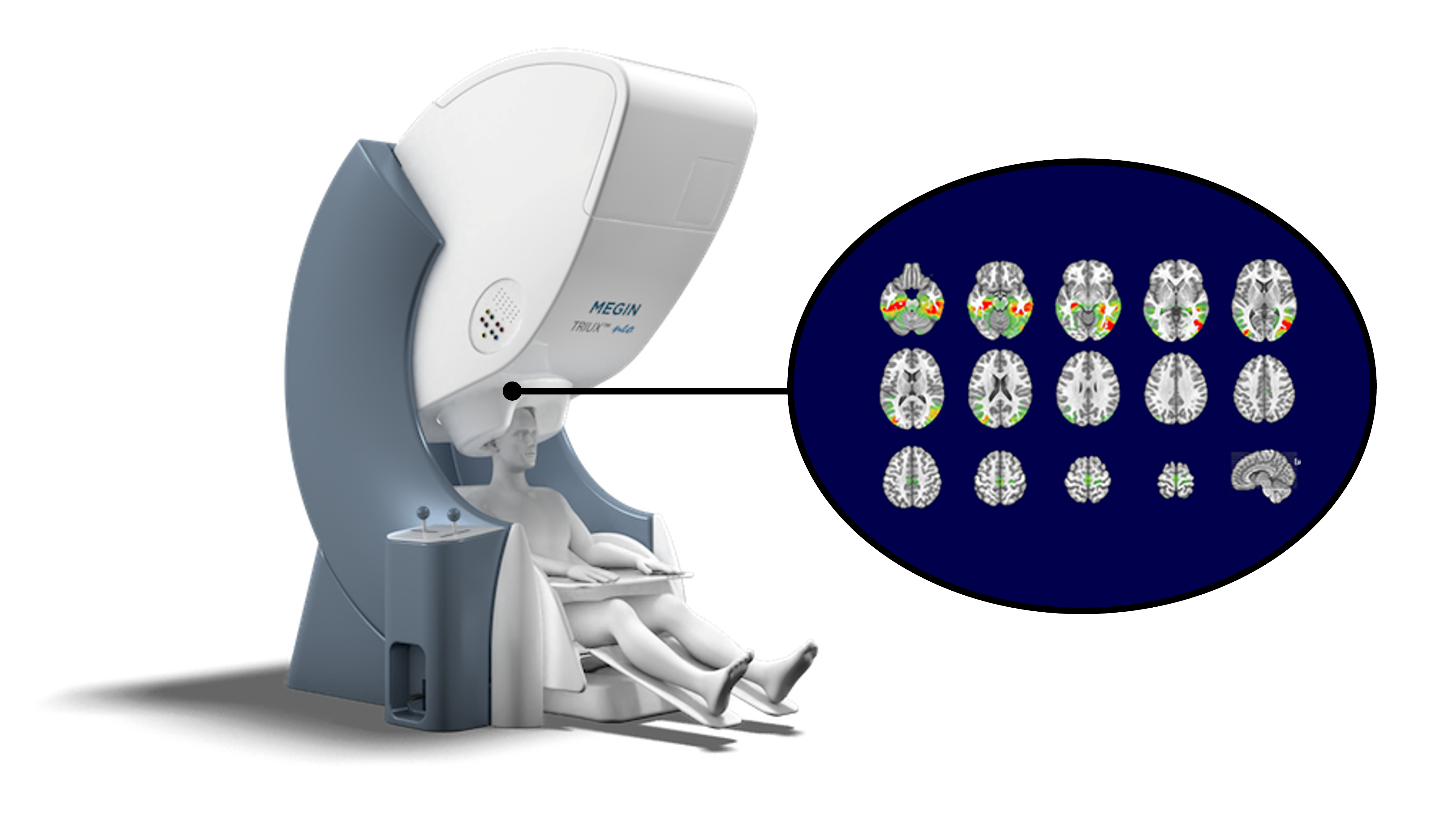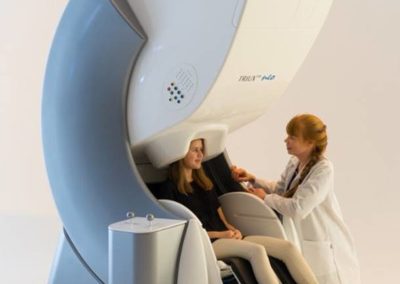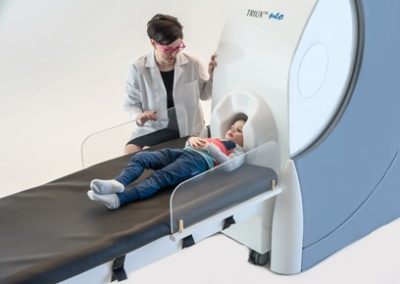An MEG platform
at Campus Biotech in 2022!

It’s official!
In addition to the arrival of the 7 Tesla MRI scanner, the Human Neuroscience Platform (HNP) is excited to announce the creation of a new MEG platform at Campus Biotech!
As explained by Dr Anne-Dominique Lodeho-Devauchelle, coordinator of the HNP: “we expect the new generation squid-MEG system – a MEGIN Triux™ neo – to be fully operational in the summer 2022. It is the first of its kind in Switzerland, and a tremendous new tool for researchers and the whole neuroscience swiss community.”

Future implantation site of the MEG platform at Campus Biotech, Geneva.
How does MEG work?
Magnetoencephalography (MEG) is a non-invasive imaging technique for investigating human brain activity.
Dr Gwenael Birot, manager of the EEG facility, explains: “MEG allows the measurement of ongoing brain activity by detecting and measuring the magnetic fields generated by individual neurons in the brain on a millisecond-by-millisecond basis, and it shows where in the brain the activity is produced.”
It is entirely non-invasive, silent, and with no applied magnetic fields, radiation or injections of any kind.

The origins of the MEG signal
Advantages of MEG
MEG can offer a strong complement to EEG and fMRI for Neuroscience studies.
MEG provides:
-
timing as well as spatial information about brain activity.
-
direct and absolute measurements from neuronal electrical activity
-
brain activation with sub-millisecond precision
In addition, MEG does not make any operational noise and can tolerate subject movement during recording.

MEG systems measure brain activity at high temporal resolution
Clinical applications of MEG
Due to its fidelity and high temporal resolution, MEG can discern human brain networks with unprecedented accuracy, pinpointing brain networks disruptions believed to be the cause of many brain disorders.
For example, evidence has shown that disruptions in the brain’s network can lead to both Alzheimer’s and autism. This positions MEG as the brain imaging modality of choice for studying these disorders. Other potential emerging clinical applications for MEG include for instance brain injury or post-traumatic stress disorder.
The MEGIN Triux™ neo
The MEG itself, a MEGIN Triux™ neo system, will be a state-of-the-art new-generation squid-MEG system.
High data quality is ensured via optimal frequency response, strong signal-to-noise and ultra resilient sensors with improved stability.
It is equipped with zero helium boil-off technology ensuring zero helium loss and recycling only when the MEG is not in use, making it an ideal working environment.
In terms of ergonomics, it offers various positioning options, facilitating neuroscience research and improving subject comfort altogether. A new pediatric comfort set has also been designed to fit pediatric patients firmly and keep them comfortable. Non-invasive, silent and without magnetic field, the new generation MEGIN Triux™ neo is compatible with patients previously excluded from MEG experiments as implants and metallic objects no longer pose problems.
Please find more information on the MEGIN Triux™ neo system here: https://megin.fi/triux-neo/
Various examples of subject positioning with the MEGIN Triux™ Neo. Credits to MEGIN OY.
Expanding the EEG-BCI facility
The New MEG system will be fully integrated into the existing MEEG-BCI facility of the FCBG Human Neuroscience Platform (HNP) located at Campus Biotech.
Just like the rest of all the HNP equipment, it will be accessible to all users from academic or clinical background, but also companies and start-ups.
You can contact eeg-bci@fcbg.ch for more information on the future MEG study costs.
A very collaborative environment
This project is the exciting result of a lemanic collaboration between the NCCR Evolving Language (joint supervision between Zurich and Geneva), the Geneva University Hospitals (HUG), the University of Geneva (UNIGE), the Ecole Polytechnique Fédérale de Lausanne (EPFL) and the Fondation Campus Biotech Geneva (FCBG).




